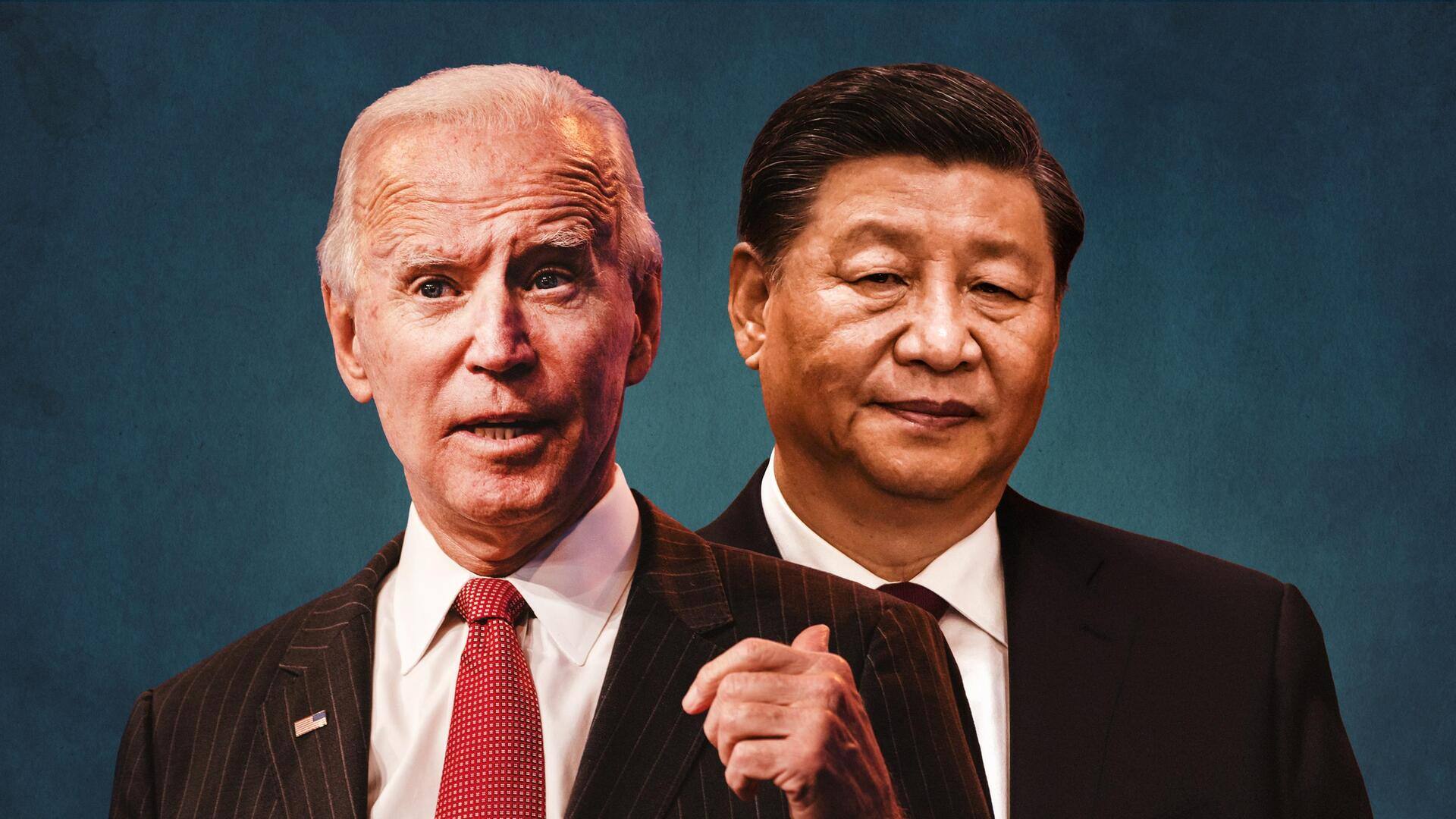
Biden-Jinping summit results in key agreements: Everything to know
What's the story
United States (US) President Joe Biden and Chinese President Xi Jinping met in San Francisco, US, for the first time since their summit in Bali, Indonesia last year.
The leaders participated in bilateral discussions, enjoyed lunch, and took a leisurely walk around the luxurious Filoli Estate, where the event was held.
Biden characterized the talks as "constructive and productive" and assured that they would "keep the lines of communication open" and that Jinping was "willing to pick up the phone."
Context
Why does this story matter?
The bilateral ties between China and the US deteriorated in the past year as both countries continued to engage in a tug-of-war over geopolitical dominance.
Their disagreements range from Taiwan, Biden's ban on semiconductor exports, China's alleged surveillance from Cuba, and alleged Chinese spy balloons entering the US.
During the G20 Summit held in India, Biden expressed disappointment over Jinping's absence from the crucial event.
India and China have also been at loggerheads over India-China border issues.
Details
New agreements reached on fentanyl, military communication, and AI
At the meeting, Jinping provided Biden with assurances on crucial matters, per The Associated Press.
China reportedly pledged to assist in reducing the production of illegal fentanyl, a lethal ingredient in drugs sold in the US.
Additionally, both leaders consented to reestablish military-to-military communication, which China stopped last year after then-US House of Representatives Speaker Nancy Pelosi visited Taiwan.
Biden also noted that the US and China would initiate discussions on artificial intelligence to tackle safety concerns.
Climate change
US, China agreed to tackle climate change
Biden and Jinping agreed to tackle climate change ahead of the crucial 2023 United Nations Climate Change Conference (COP28) in Dubai.
However, both countries—the world's biggest carbon emitters—avoided committing to stop using fossil fuels.
David Waskow of the World Resources Institute termed the agreement a "major step", per the BBC.
"China is the world's largest methane emitter and serious actions to curb this gas is essential for slowing global warming in the near-term," he added.
Insights
Biden urged China to help in cooling global tensions
In their private conversation, Biden reportedly urged Jinping to leverage his influence to ease global tensions, specifically by encouraging Iran not to escalate the conflict between Israel and Hamas.
A US official reported that Biden did the majority of the talking, with Jinping mostly listening. But it was too early to determine what message China was conveying to Tehran.
Moreover, Biden pushed his Chinese counterpart to continue refraining from providing military support for Russia's invasion of Ukraine, per CNN.
Facts
'Clear-headed' exchange on Taiwan, economic challenges
Biden and Jinping also engaged in a "clear-headed" debate on Taiwan, with the former reaffirming the US's "One China" policy and the conviction that any resolution must be peaceful, CNN reported.
However, Biden stated that the US would continue to arm Taiwan against any Chinese attempt to forcibly reunify the island with the mainland, the AP reported.
Regarding economic challenges, Jinping urged Biden to remove sanctions and modify policies on export controls for sensitive equipment.
What Next?
Positive step toward detailed working-level discussions
Council for Foreign Relations' Fellow for China Studies Zoe Liu termed the Biden and Jinping meeting a small but positive step.
The agreements would lay the groundwork for more in-depth working-level talks, she claimed, per AP.
However, she said these would unlikely alter the structural challenges in US-China bilateral relations.
US National Security Adviser Jake Sullivan had previously mentioned that Biden sought "practical ways" to demonstrate that meeting with Jinping can help protect American interests and advance American priorities.